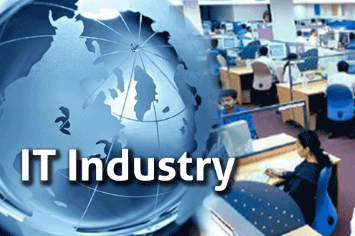The Ever-Evolving World of Technology
Introduction
Technology has become an inextricable part of our daily lives. From the moment we wake up to the time we go to sleep, technology is constantly present, influencing our interactions, work, and entertainment. This article delves into the multifaceted world of technology, exploring its history, current trends, and the profound impact it has on society.
A Brief History of Technological Advancement
The history of technology is a testament to human ingenuity. From the invention of the wheel to the development of artificial intelligence, humans have constantly strived to find innovative solutions to challenges and improve their quality of life.
- The Industrial Revolution: This period marked a significant turning point, with the advent of steam power and mechanization revolutionizing manufacturing and transportation.
- The Information Age: The invention of the computer and the internet ushered in the Information Age, transforming how we communicate, access information, and conduct business.
- The Rise of the Digital Age: The 21st century has witnessed an explosion of digital technologies, including smartphones, social media, and the rise of the internet of things (IoT), connecting everyday devices to the internet.
Key Technological Trends Shaping the Future
Several key technological trends are poised to shape the future:
- Artificial Intelligence (AI): AI is rapidly advancing, with applications ranging from self-driving cars and medical diagnosis to personalized recommendations and fraud detection. Machine learning and deep learning are driving significant breakthroughs in AI capabilities.
- Internet of Things (IoT): The IoT is connecting an ever-growing number of devices to the internet, from smart homes and wearables to industrial equipment and smart cities. This connectivity enables data-driven insightsand automation across various domains.
- 5G and Beyond: 5G technology is revolutionizing mobile communication with faster speeds and lower latency, enabling applications such as augmented and virtual reality, remote surgery, and autonomous vehicles.
- Biotechnology: Advances in biotechnology are revolutionizing healthcare, agriculture, and environmental sustainability. Gene editing, personalized medicine, and bio-inspired materials are transforming various industries.
- Cloud Computing: Cloud computing provides on-demand access to computing resources, such as storage, processing power, and software, over the internet. This technology enables scalability, flexibility, and cost-effectiveness for businesses and individuals.
The Impact of Technology on Society
Technology has profoundly impacted society in numerous ways:
- Economic Growth: Technological advancements have fueled economic growth by increasing productivity, creating new industries, and fostering innovation.
- Social Change: Technology has transformed how we communicate, connect, and interact with each other. Social media platforms have connected people across the globe, while online platforms have facilitated the rise of the sharing economy and the gig economy.
- Healthcare: Technology is revolutionizing healthcare through advancements in medical imaging, telemedicine, personalized medicine, and drug discovery.
- Education: Technology is transforming education by providing access to online learning resources, personalized learning experiences, and innovative teaching methods.
- Environmental Impact: Technology plays a crucial role in addressing environmental challenges such as climate change, pollution, and resource depletion. Renewable energy technologies, energy-efficient devices, and smart grids are key to a sustainable future.
The Challenges of Technology
While technology offers numerous benefits, it also presents significant challenges:
- Job Displacement: Automation and AI have the potential to displace jobs in certain sectors, leading to economic disruption and social inequality.
- Data Privacy and Security: The collection and use of personal data raise concerns about privacy and security. Data breaches, cyberattacks, and the misuse of personal information pose significant risks.
- Digital Divide: Unequal access to technology and the internet can exacerbate existing inequalities, creating a digital divide between those who have access and those who do not.
- Social Isolation: Excessive use of technology can contribute to social isolation and loneliness, particularly among young people.
- Ethical Considerations: The development and use of certain technologies, such as AI and biotechnology, raise ethical considerations regarding autonomy, fairness, and the potential for misuse.
The Future of Technology
The future of technology holds immense potential. Continued advancements in AI, IoT, biotechnology, and other emerging technologies will transform various aspects of our lives, from how we work and learn to how we interact with the world around us.
To harness the full potential of technology while mitigating its risks, it is crucial to:
- Invest in education and training: Equip individuals with the skills and knowledge necessary to thrive in a technology-driven world.
- Promote responsible technology development: Encourage ethical development and use of technologies, prioritizing human values and societal well-being.
- Bridge the digital divide: Ensure equitable access to technology and digital literacy for all.
- Foster international collaboration: Address global challenges such as climate change and pandemics through international cooperation and technological innovation.
- Engage in ongoing dialogue and debate: Continuously engage in discussions about the societal implications of technology and develop appropriate policies and regulations.
Conclusion
Technology has played a pivotal role in shaping human civilization, driving progress, and transforming how we live, work, and interact. While technology presents both opportunities and challenges, it is crucial to harness its potential for the betterment of society. By embracing responsible innovation, investing in education and training, and addressing the ethical considerations associated with emerging technologies, we can ensure that technology serves as a force for good in the years to come.







